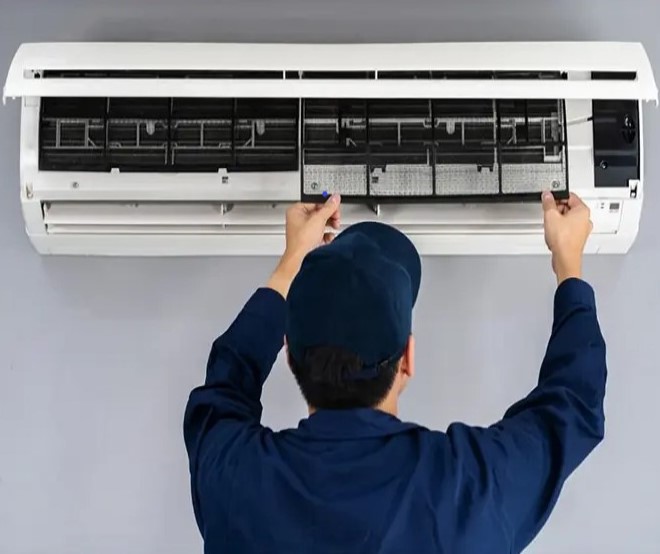
One unfortunate aspect of life is that most of us have to contend with drastic changes in the external air. Temperatures sometimes get quite high and during the cold months temperatures plummet, with high humidity making the environment feel warmer or cooler than the thermometer claims. To help alleviate the problem, almost every commercial and residential building owns an AC unit. Air conditioning systems work efficiently to maintain the air within the room at comfortable levels.
What you may not know however is that heating ventilation and air conditioning systems use the fresh air from outside for providing your desired quality of air inside. This begs the question of how changes in outdoor air affect the functioning of the AC units. Here are some of the ways your AC unit is being impacted by outside conditions.
Outside Temperature
The AC unit is made of coils that pick up heat from the outside air, but have nowhere to get rid of it. Therefore, the temperature of the system increases gradually. A heat exchanger is, therefore, required to get rid of the extra heat. A high-temperature difference between the outside air and the refrigerant will affect the amount of heat transferred with the unit and the rate at which it is transferred. Even perfect systems decrease in efficiency with outside temperature rising about 2 degrees. This drop in efficiency is quite dramatic in the real world. You will notice that your air conditioner seems to be working harder as the outside temperature increases.
Poor Air Quality and Pollution
Many factors affect the quality of air we breathe. Pollen, carbon monoxide, and sulfur dioxide are just but a few pollutants that affect us today. With all technological advancements today meant for improving the quality of our lives, it is unfortunate that air quality is not given due attention.
Diminished air quality is bad for everyone, but it can be particularly bad for the AC equipment. Particles of polluted air such as smoke and dust accumulate in the AC unit and these particles will hinder the operation of the AC unit. After some time, the efficiency of the unit is reduced. This is why it is always important to keep on top of making sure that the AC equipment is cleaned and maintained on a regular basis. Regular cleaning removes any such dust and particles that could collect with time.
Humidity in the External Air
Since one of the primary functions of the AC unit is to remove excess moisture from the air, the process can be made much more difficult when the external humidity is high. The efficiency of the AC unit is thus affected when we approach the warm weather months. A high amount of moisture in the air can also carry a larger amount of dust that settles in the unit’s fins and coils. When the humidity is high, the AC systems have to use more energy and work harder to keep the home cool. If you have an older and inefficient system, it may not be able to handle the job quite well. It may be time to consider an upgrade to a more modern solution.
Heat, humidity and air pollution can affect the AC unit. Long and irregular run times of the unit can also affect it significantly. Since your AC unit represents a significant investment, you will want to make sure that you protect it by scheduling appointments with certified technicians that can be found at www.bobheinmiller.com on a regular basis for cleaning, maintenance and inspection. You can also clean the unit yourself using a coil cleaner so as the system can be efficient in its operation. Removing debris and dirt allows the system to work more efficiently and will lead to lower utility bills.
The writer, Edrick Hypolite, is an Orlando resident who always strives to keep his home comfortable and keeps track of everything that could compromise that. If you wish to learn more about Edrick you can visit on Google+.
 DE
DE  EN
EN 

